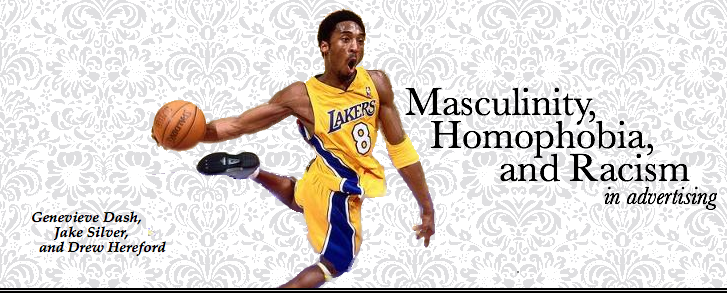
|
Four other ads in the
2008 Hyperdunk campaign
adhere to the format of the three we analyzed: unitary advertisements
depicting a dunker and a dunkee alongside the violent and suggestive
'crotch-in-the-face' image. Each of these four advertisements were
primarily hung in subway stations, and thus provided minimal time for
passerbys to dissect the images. Therefore, between the passing public
and
the performing image there only exists a moment of homoerotic
suggestion alongside homophobically demeaning text across the images.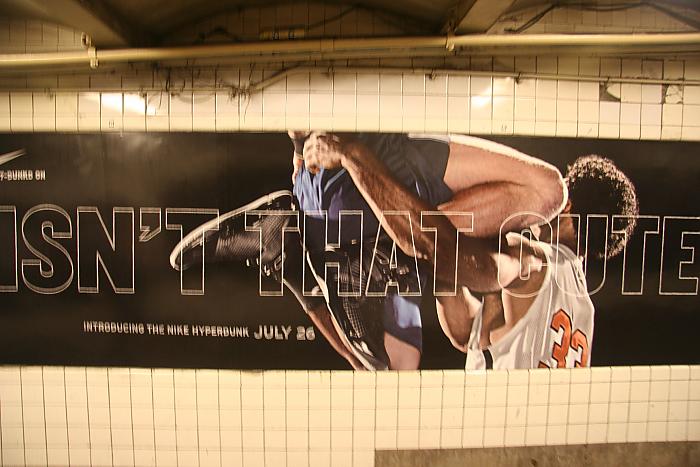  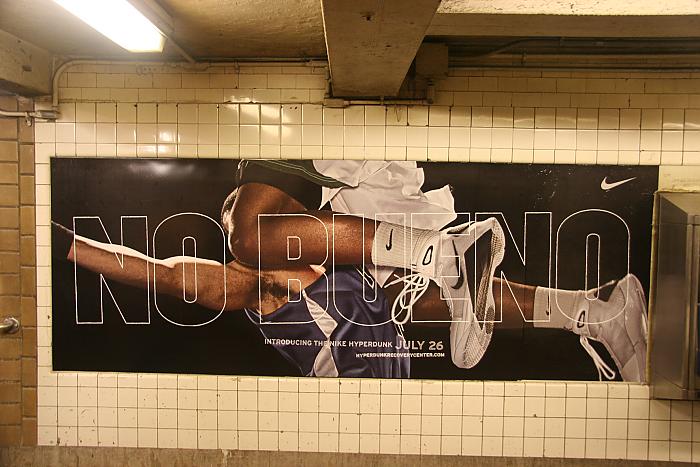  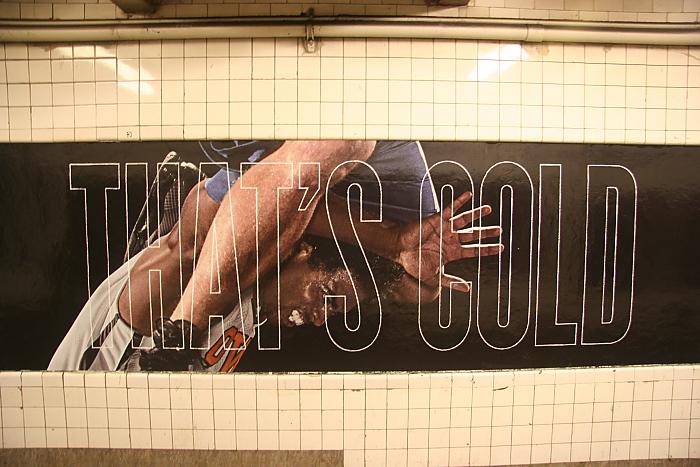  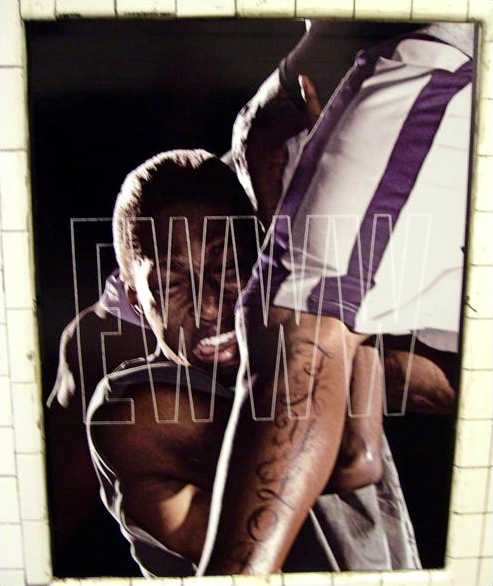 Three other advertisements that were photographically documented before Nike removed the ads are composed of a series of pictures rather than just one image. The images in these ads remain relatively constant, with, once again, dunking images that connote intersections of masculinity and homophobic sexuality. One of these series of images reads, "What Will She Say to the Neighbors?": 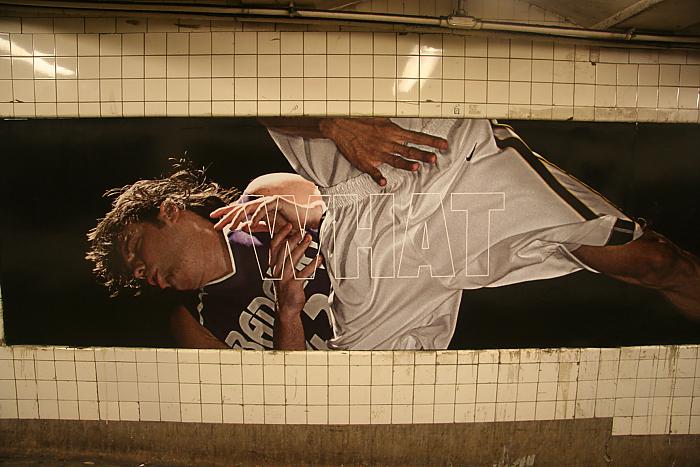 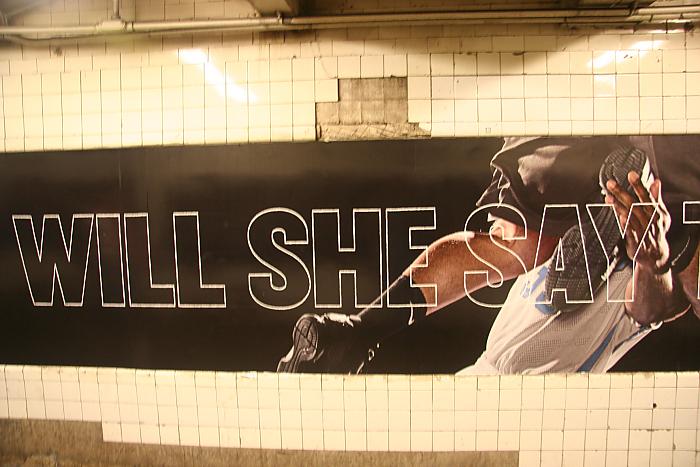  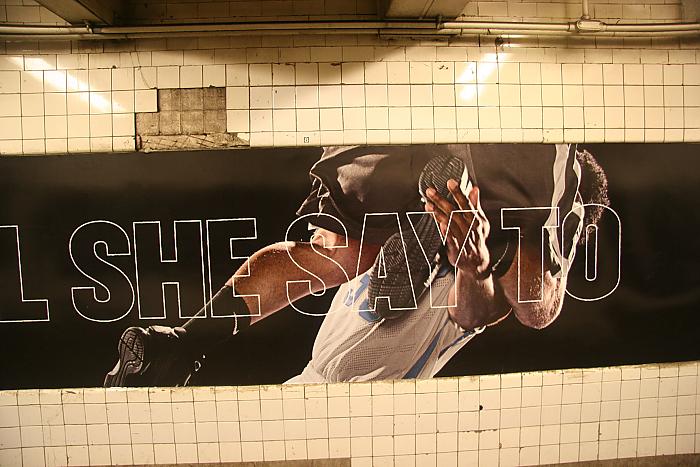 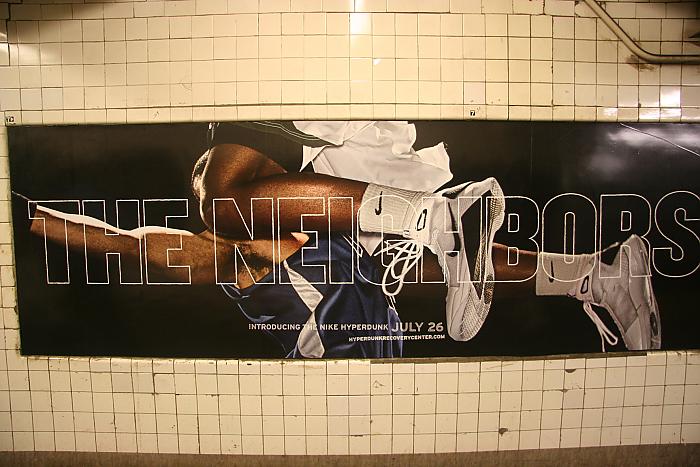 Another reads, "Your Mama is Not Gonna Let You Come Home After This": 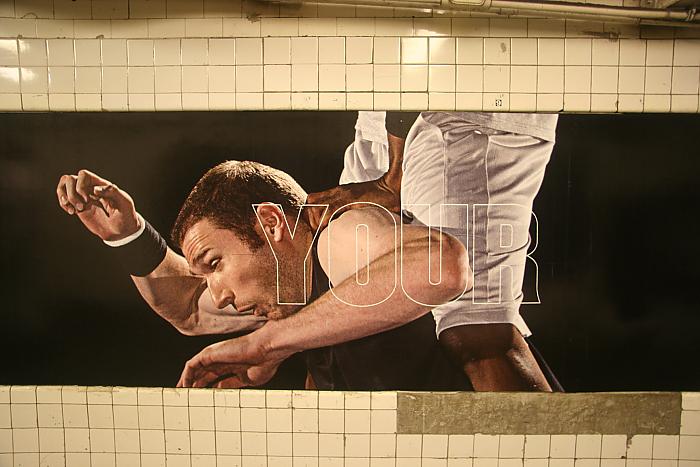 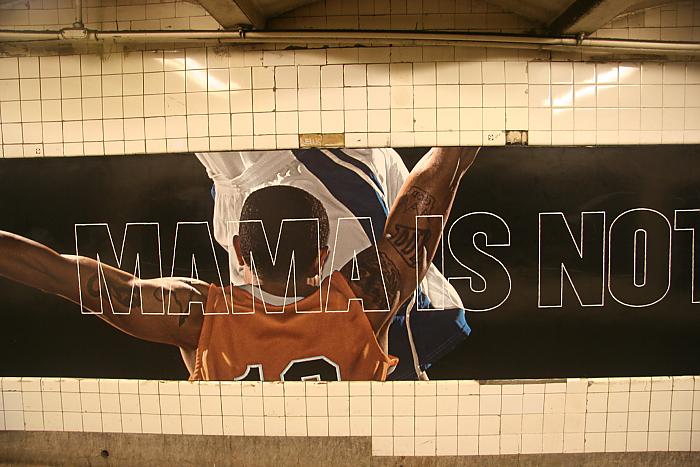  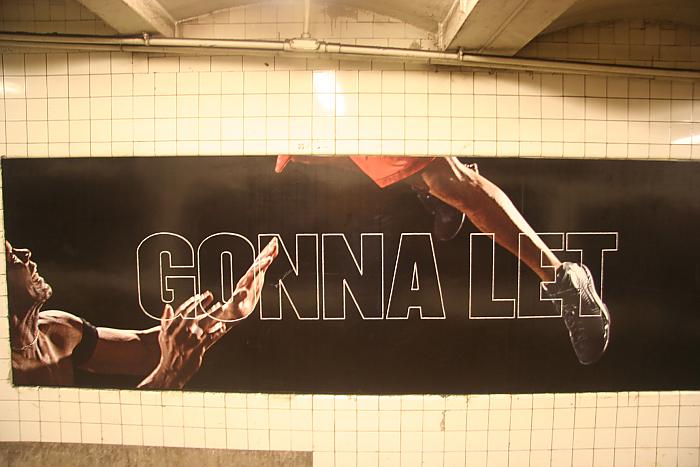 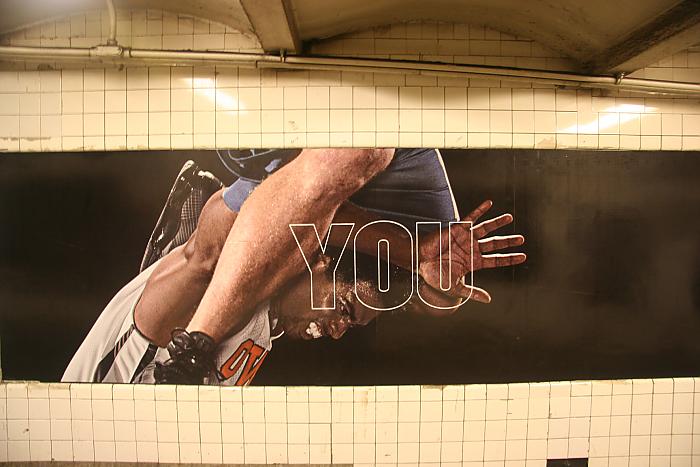  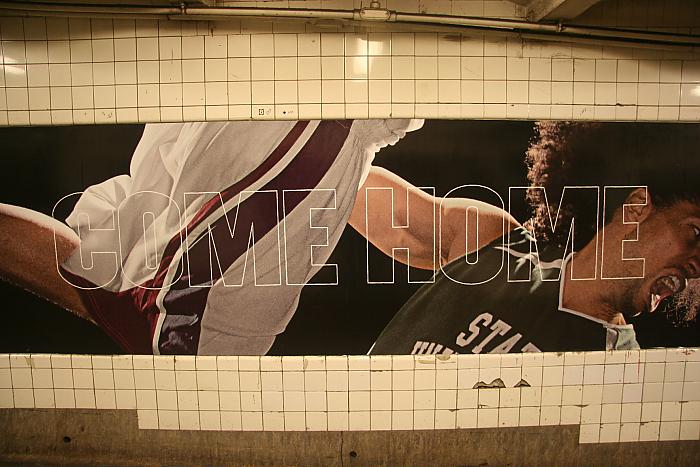 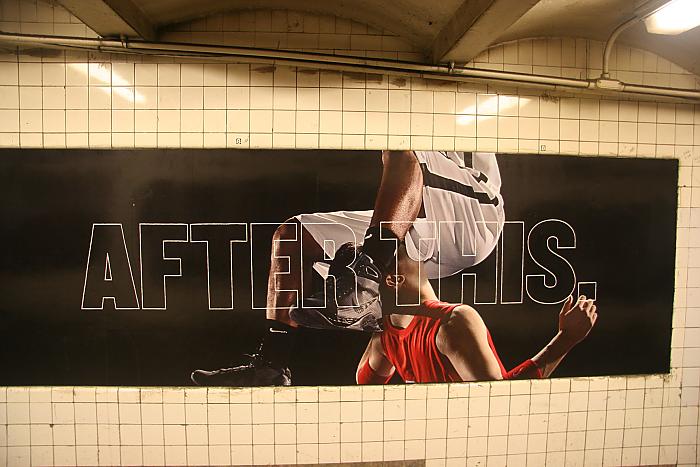 And finally, "Your Mama Loves You. Your Girlfriend, Your Dad, Your Cousin, Not So Much": (the billboard reading 'Your Mama' is not pictured) 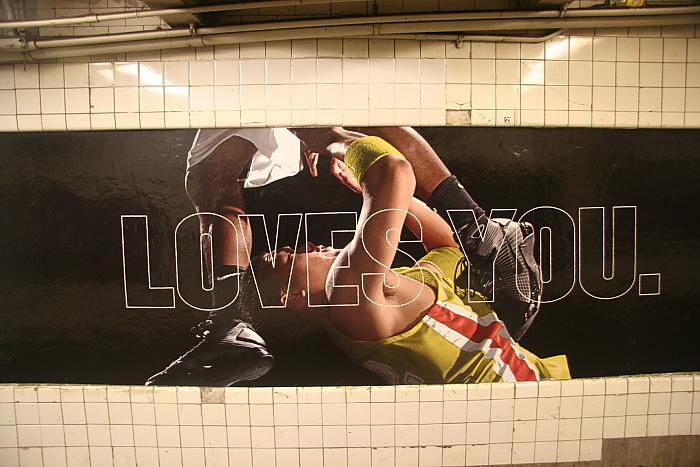 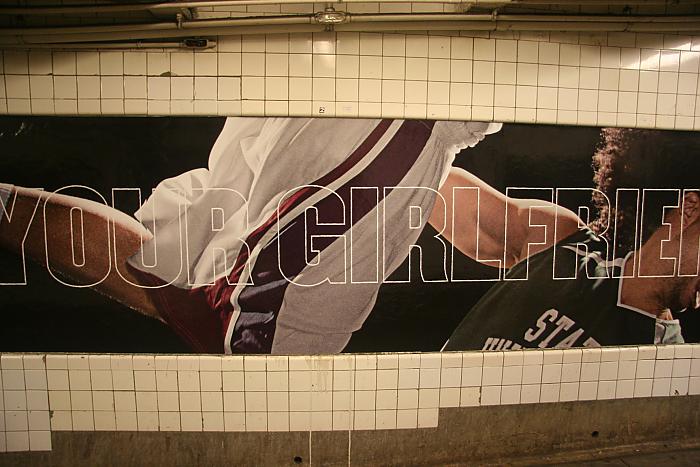  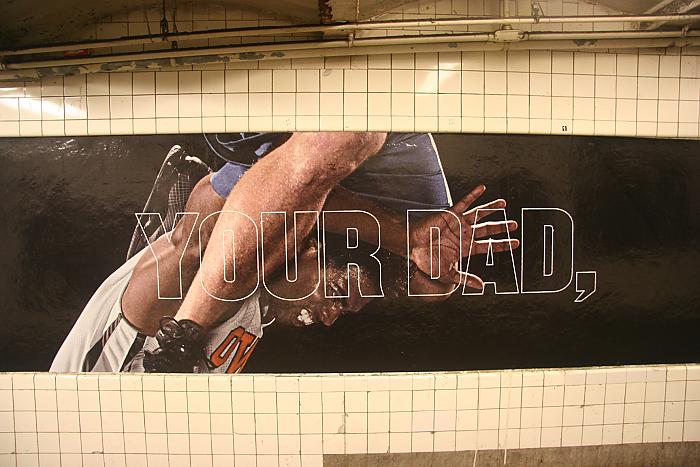 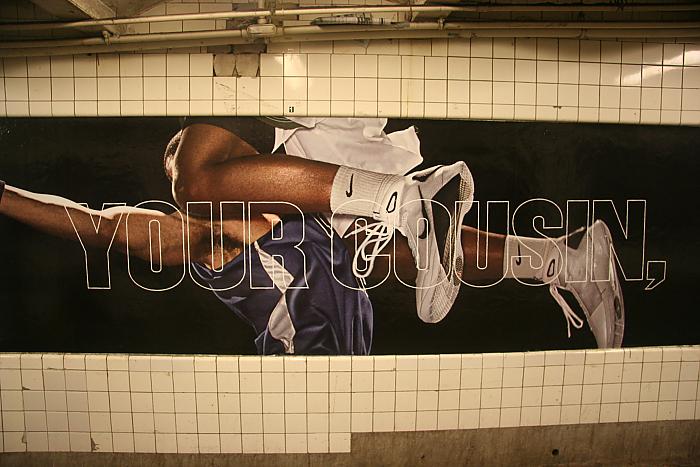  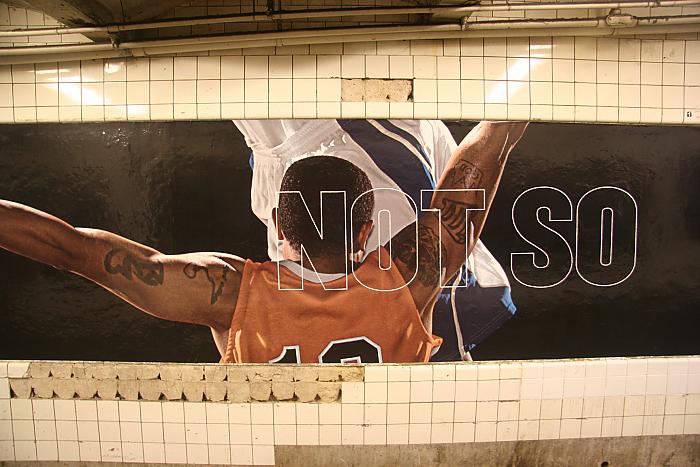 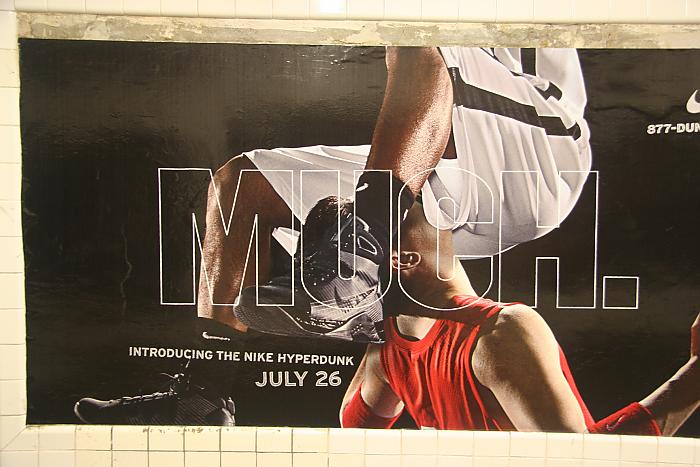 As we have already discussed, these series of images focus on relating the passing public to the fear of failing at masculinity or, as the advertisements illustrate, being the player getting 'dunked on.' These specific advertisements tend to associate the dominated and perceived homosexual player with the femininity of a mother figure: the mother is presupposed as the only individual who loves this homosexual 'other,' and she is framed as the one that will worry about his public performance of sexuality (i.e. what will she possibly tell the neighbors if he's gay!?). The second series culminates in a complete cultural otherization of the perceived homosexual and emmasculated players, for this prototypical mother figure has now scorned her child, and more so this child has been rejected from the naturalized social groupings of society: the family. These series of Hyperdunk ads are thus alarmingly similar to the homophobia of heterosexist society and consequent struggles that homosexual youth face: getting ostracized from homes, family, and friends, losing friends and family members due to sexuality, and living in fear of a world that primarily judges individuals based on their sex lives. As Kath Weston (1958 - ) notes of gay individuals' struggles in America, “The heart of coming out involves laying claim to a label understood to reflect back on total personhood” (1991:65). Western heterosexist society completely judges homosexual individuals as sexed and sexed in a particular way, which highlights homosexuality as the most visible mark society discerns from gay individuals. This idea of gay as 'total personhood' reflects back on the instant in time the public has to reflect on these Nike advertisements when passing them in the subway. Whether conscious or subconscious, the frame of the dunkee in these advertisements connotes ideas of homosexuality and how that homosexual label translates into losing, failing, being excised, and ultimately brands an individual as a problematic figure whether within Nike's ads or within the structural norms of culture. |
|||||||
"Punks Jump Up" // Further Information // Sexism and Racism in Advertising Homepage